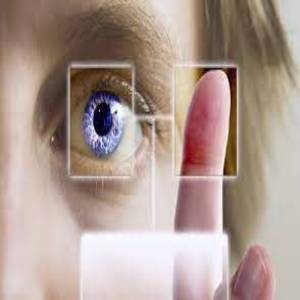
Human identification encompasses the procedures and validations employed to establish or confirm the identity of a person. This encompasses an array of approaches and methodologies aimed at discerning and verifying the individual’s uniqueness through distinct characteristics, qualities, or attributes. The process involves the utilization of various tools such as lip, face, head, shoulder, fingerprint, and palm detectors, along with advanced technologies like next-generation sequencing (NGS), capillary electrophoresis, rapid DNA analysis, polymerase chain reaction (PCR), nucleic acid purification, and extraction methods.
How Big is the Global Human Identification Market?
The global human identification market size reached US$ 1.7 Billion in 2022. Looking forward, IMARC Group expects the market to reach US$ 3.4 Billion by 2028, exhibiting a growth rate (CAGR) of 11.5% during 2023-2028.
Global Human Identification Market Trends:
The global market is experiencing significant growth due to the increased utilization of human identification in various domains such as law enforcement, forensic investigations, border control, and immigration processes. This growth is primarily driven by the use of DNA analysis and fingerprint matching to identify suspects and link individuals to crime scenes. Additionally, the adoption of human identification in border control and immigration processes enables identity verification, detection of fraudulent documents, and screening for security threats among travelers, thereby contributing to market expansion.
Furthermore, the banking, financial services, and insurance (BFSI) industry is increasingly employing human identification for activities such as opening bank accounts, conducting transactions, and preventing financial crimes. This industry’s recognition of the importance of human identification has further propelled market growth. Moreover, the rise in cyberattacks, money laundering, cyber fraud, and other financial scams over the internet has created a need for robust human identification systems, leading to a positive impact on the market.
Download your free sample brochure: https://www.imarcgroup.com/human-identification-market/requestsample
What is included in market segmentation?
The report has segmented the market into the following categories:
Breakup by Product & Service:
- Instruments
- Assay Kits and Reagents
- Software and Services
Breakup by Technology:
- Polymerase Chain Reaction (PCR)
- Next Generation Sequencing (NGS)
- Nucleic Acid Purification and Extraction
- Capillary Electrophoresis
- Rapid DNA Analysis
- Others
Breakup by Application:
- Forensic Applications
- Paternity Testing
- Others
Breakup by End User:
- Forensic Laboratories
- Research Centers, Academic and Government Institutes
Breakup by Region:
- North America
- United States
- Canada
- Asia-Pacific
- China
- Japan
- India
- South Korea
- Australia
- Indonesia
- Others
- Europe
- Germany
- France
- United Kingdom
- Italy
- Spain
- Russia
- Others
- Latin America
- Brazil
- Mexico
- Others
- Middle East and Africa
Who are the key players operating in the industry?
The report covers the major market players including:
Abbott Laboratories, Agilent Technologies Inc., Bio-Rad Laboratories Inc., Eurofins Scientific, Hamilton Company, Illumina Inc., Laboratory Corporation of America Holdings, PerkinElmer Inc., Promega Corporation, Qiagen N.V., Siemens AG and Thermo Fisher Scientific Inc.
Browse Other Reports:-
Clinical Decision Support Systems (CDSS) Market size reach US$ 2.36 Billion by 2028
plasma fractionation market size 2023-2028
Contact Information:
IMARC Group 134 N 4th St. Brooklyn, NY 11249, USA USA: +1-631-791-1145 | Asia: +91-120-433-0800 Email: [email protected] Follow us on Twitter: @imarcglobal LinkedIn: https://www.linkedin.com/company/imarc-group/mycompany/
Tags:
PR-Wirein, iCN Internal Distribution, Extended Distribution, Research Newswire, English